


1944 Heer Panzer leutnant mitt Sonderbekleidung der Deutschen Panzertruppen 2e Modèle St Laurent
 |
Historique Voir ICI
History Click Here
| Musée de Falaise Apres la Bataille Falaise Museum After the Battle (Osprey) |
 |
 |
 |
 |
|
|
|
|||||||||||||||||||||||||||||||
| Merci à l AMB Brescia |
Historique Voir ICI
History Click HERE
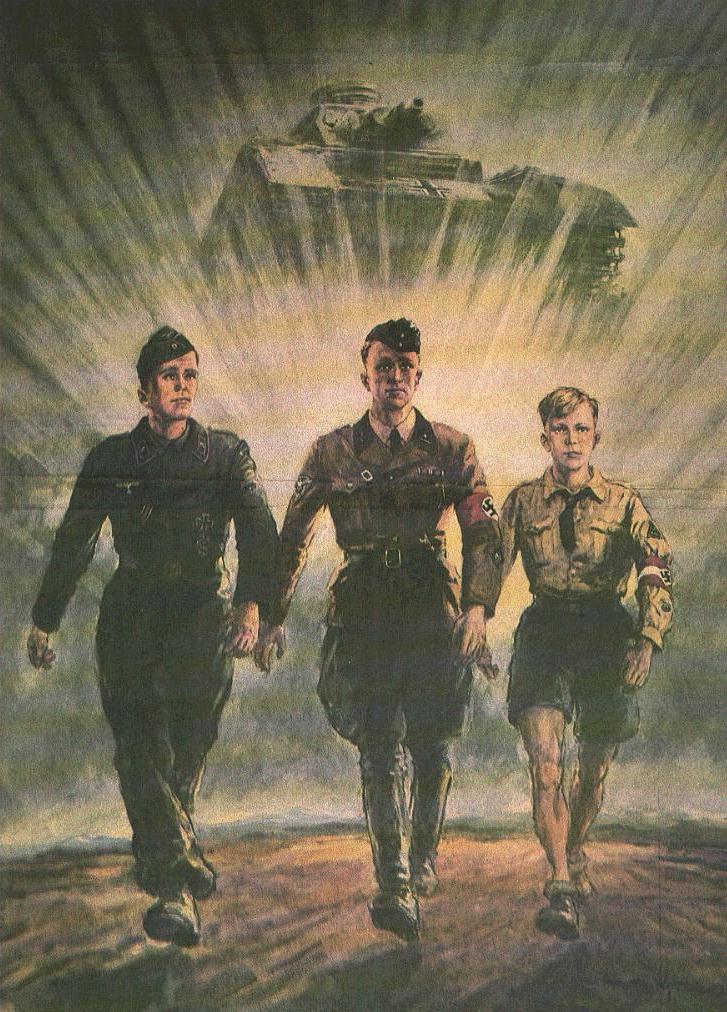 |
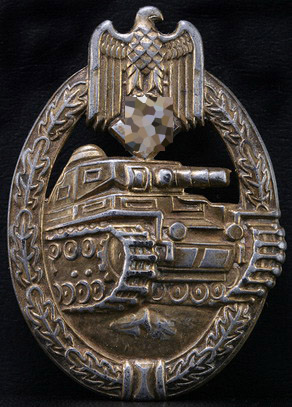 |
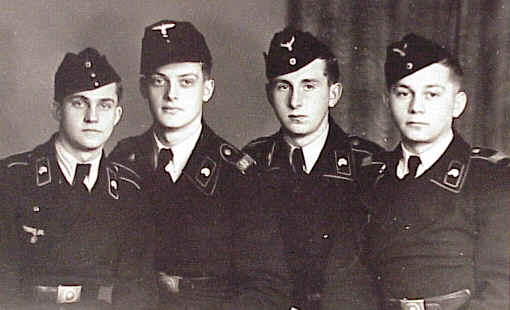 |
|
|||||||||||
|
The Special Uniform for German Armoured Troops
The creation of the German Panzer arm brought with it the need for a purpose built uniform for those men crewing the new array of armoured fighting vehicles. The new uniform, known as Sonderbekleidung der Deutschen Panzertruppen (Special Uniform for German Armoured Troops), is today referred to universally by collectors as the "panzer uniform."
The AFV Jacket was introduced In November 1934, and made with practicality in mind. Cut short in the waist, and with no external pockets, there was a minimum of cloth that could get caught on the inner workings of a tank. Some jackets had the shoulder straps sewn down for this reason as well. The jacket for the "panzer uniform" was double breasted, for additional warmth, and made from black wool; the dark colour helped conceal oil stains. The large collar had Waffenfarbe piping, but NCOs did not wear their rank tress on the collar.
There was a deliberate attempt in the German press from early on to associate modern tank troops with cavalry troops of old; the black coloured uniform was linked to the 7th ("Black") Hussars of Frederick the Great's army, and to later Prussian Leibhusaren and Brunswick Hussar regiments. The death's head symbol used by ancient Hussar units was adopted as a collar patch for all ranks wearing the new AFV uniform (see the page on AFV uniform collar insignia). First Pattern The first pattern jackets are identified by the wide lapels, described as "ornamental" in uniform references, they had no hook and eye to secure the jacket closed, nor did they have buttons and buttonholes. The collar was smaller than later jackets, and more "square" in shape.
|
|||||||||||
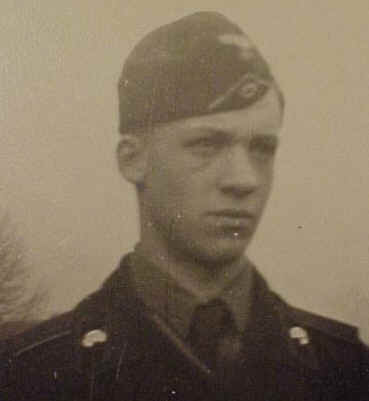 |
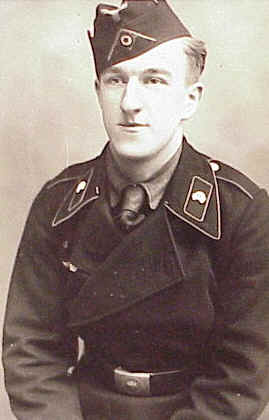 |
||||||||||
| Since the double breasted design of the jacket exposed the shirt, a mouse grey shirt and black necktie were introduced to be worn with the uniform. Note the gap between lapel and collar on man at right, and the metal hook and eye visible in the photograph. | |||||||||||
|
|||||||||||
| Reed Green AFV Uniform
A uniform identical in cut to the panzer uniform, constructed of reed green denim, was also introduced in May 1941; originally to armoured car crews only. It was intended to be worn during the summer months in lieu of the heavy wool uniform, and could also be used as an outer layer overtop of the black wool uniform in winter. In 1942, reed green jackets cut identically to the AFV uniform began to be issued to tank crews also; these uniforms also had a large patch pocket added to the left front chest. |
|
||||||||||